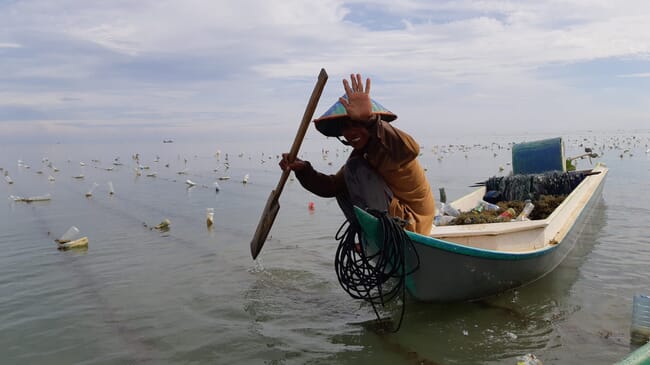
“The impacts of climate change on seaweed production not only affects farmers, but also thousands of wage labourers whose job it is to attach the seaweed to ropes – often women with caring responsibilities, elderly people, and other vulnerable groups,” stated Dr Zannie Langford, who was awarded the research grant © Griffith University
Dr Zannie Langford, a recent recruit to the agribusiness research stream of the Griffith Asia Institute (GAI), has been awarded the grant through the Australian government’s Department of Foreign Affairs and Trade’s Knowledge Partnership Program.
The research will develop computer vision and machine- earning tools for analysis of satellite imagery to monitor seaweed production, undertake ground-truthing of production estimates using oceanographic measurements and farm production diaries, and explore community perceptions of climate variability and their resilience strategies to identify interventions.
Seaweed farming is Indonesia’s largest marine aquacultural industry, but the variability of ocean conditions and the impact of rainfall on seaweed production mean that it is an industry characterised by risk. As seasonal patterns become harder to predict, widespread seaweed death and significant losses of product are becoming more common, impacting the 62,000 coastal households currently involved in the industry.
“Despite the importance of seaweed farming to coastal livelihoods, accurate national production data by location and month is not available, which inhibits evidence-based policy making. Satellite imagery is well-established for monitoring land use change but is not yet possible for marine aquaculture except across small areas,” said Dr Langford in a press release.
She added: “Our multi-disciplinary team has the expertise in machine learning, agricultural economics, remote sensing, qualitative and quantitative social research, and applied biophysical research needed for an integrated approach.”
Dr Langford is the newest addition to the GAI agribusiness team, having recently received a postdoctoral fellowship for her project studying technology driven changes in development financing in Indonesia and the Pacific.



